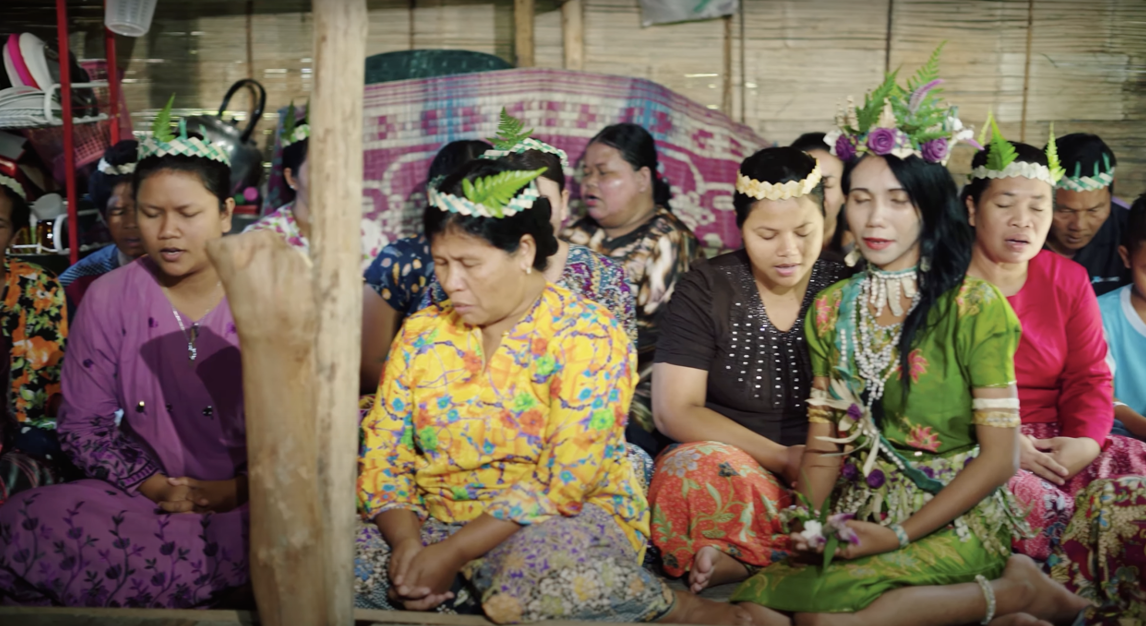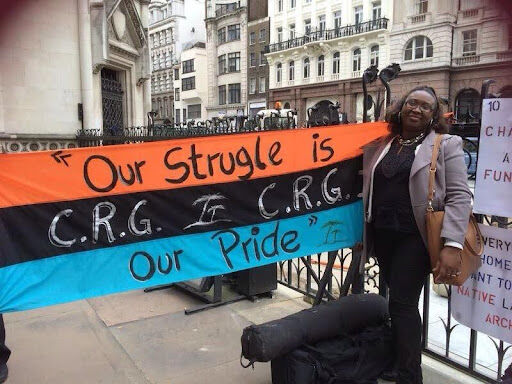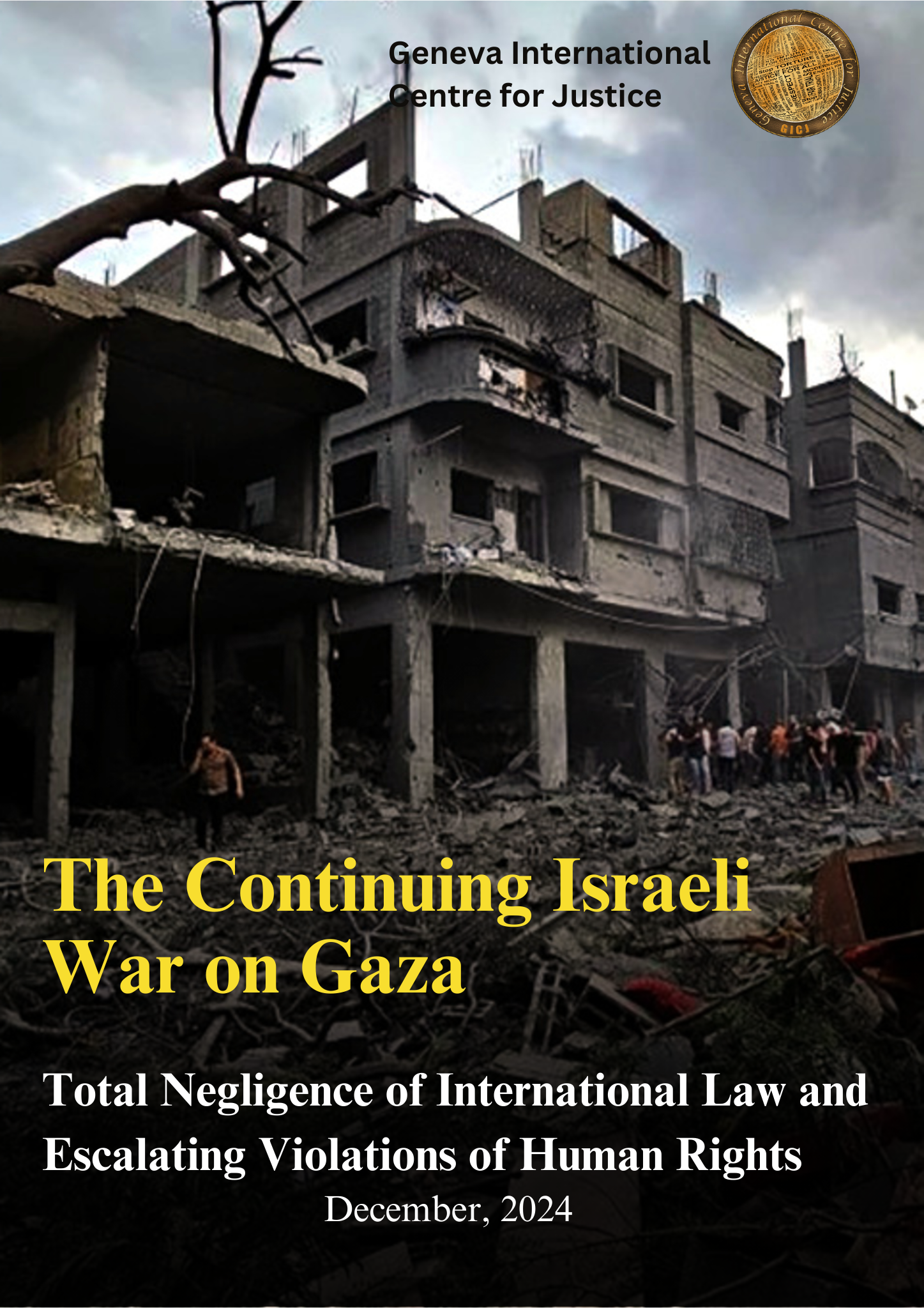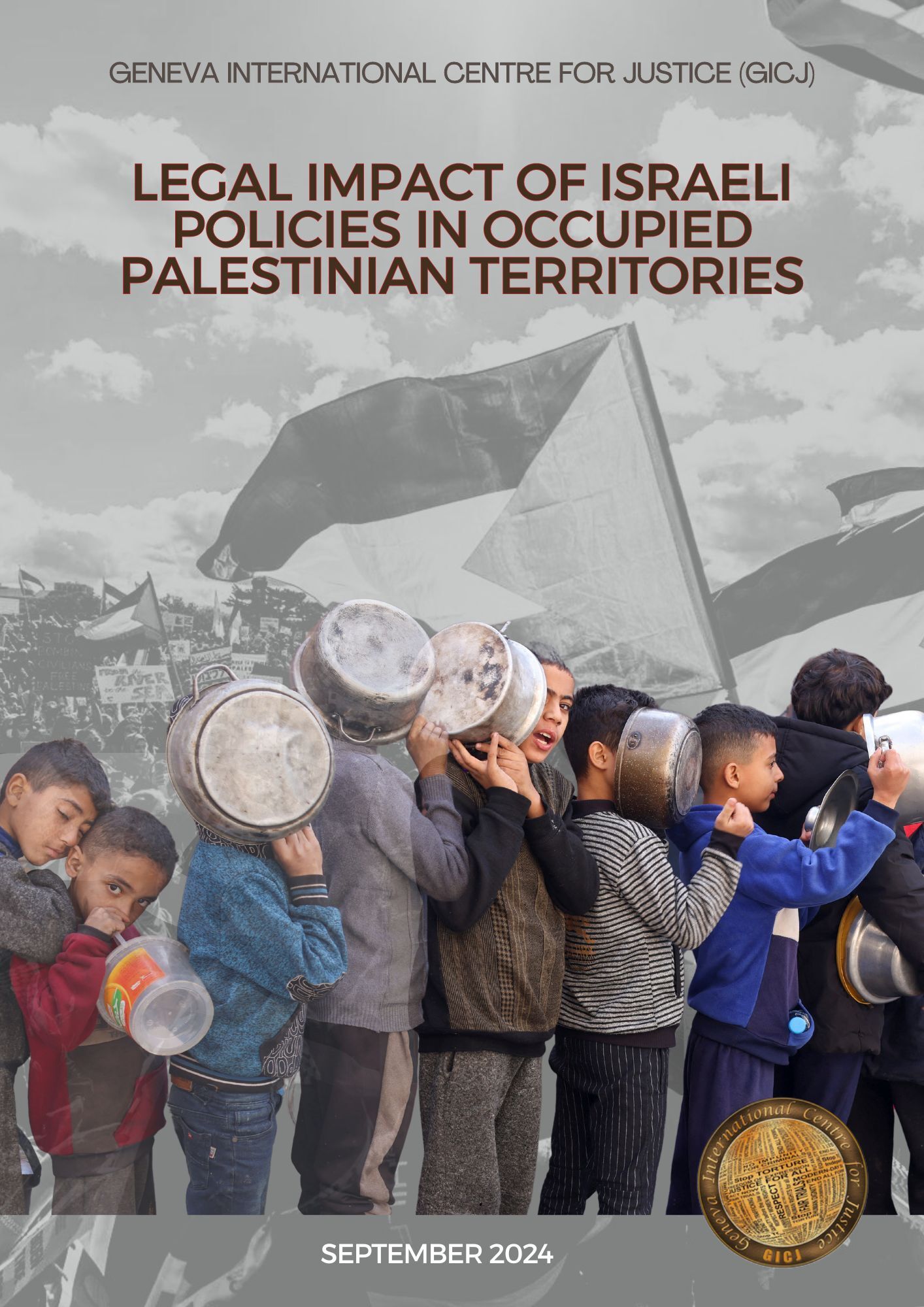UPR - Third Report of Morocco
On May 2, 2017, Mr. Mostafa RAMID, Chair of the Moroccan delegation and Minister of State for Human Rights of the Kingdom of Morocco presented the national report of the Universal Periodic Review of Morocco on its human rights commitments and application of previous recommendations.
Following the Universal Periodic Review of 2012, Morocco fully adopted a special action plan for the implementation of the recommendations set by various human rights mechanisms. Numerous recommendations have been realized while others are a work in progress and is being assessed.
Presentation of the National Report

As a follow-up to the 3rd review, Morocco outlined the activities taken towards implementing the recommendations from the previous universal periodic review session and outlined the ongoing efforts to strengthen the protection and promotion of human rights. Since the previous session, Morocco mainly adhered to the 9 major conventions of human rights.
International instruments: Morocco has ratified the International Convention for the protection of All Persons from Enforced Disappearance (ICPPED), joined the optional protocol to the Convention Against Torture (CAT), the optional protocol on Civil and Political rights and the protocols to CEDAW.
Institutional framework for the protection and promotion of human rights: Morocco is going to follow-up on all human rights issues and the Special Procedures as recommended. Mechanisms on torture, enforced disappearances, human trafficking, food, and human rights and international solidarity have been received and visited several areas across the country.
Working Group on forced disappearance: Morocco received the working group, which held one of its sessions in the country. Morocco has standing invitations to other mandate holders and SRs to visit the Kingdom of Morocco.
National legislations: a number of national legislations and Action Plans have been adopted. cooperated with stakeholders on specific goals,
Judiciary and judicial coverage: for all Morocco and non-Morocco civilians living in Morocco will have full coverage by an independent council set up in 2017 with standards set by city of Venice and confirmed by European commissions. Further a number of judges have been appointed as members of the constitutional court.
Human rights and democracy: a number of ordinances have been adopted aimed at protecting a several Human Rights to foster democracy and to live up to the legislations of 2012. Additionally, a number of laws have been adopted regarding setting up political parties and to facilitate recommendations.
Respect for general human rights: legislative bodies towards respecting journalists and the media, families combating disappearances, protection for women and children, elderly, and those with disabilities have been adopted.
Civil legislation: Morocco has adopted on fair trials, laws against torture, good governance, protection of Civil Society Organisations (and have been provided with financial resources), promotion of citizens to be part of building societies to challenges as witnessed over the last years will be tackled.
Freedom of assembly and association: 150,000 civil society organisations have been authorized and permitted to organize demonstrations and exercise their right to freedom of assembly and association
Migrants: in line with decrees, protection of migrant workers has been adopted including measures to facilitate matters to address asylum seekers requests. In 2014 a legislation was adopted to protect foreign migrants and the situation of more than 93,000 migrants has been regularized. In 2016 the government started to address claims and asylum seekers (90,000 already addressed to protect migrants).
Enhanced protection of vulnerable people: public facilities to protect the elderly, children, and people with disabilities, and women’s rights were adopted. Additionally, the government re-doubled efforts to adopt laws on racial discrimination.
Regional and national elections: participation of women have been increased by 21%. Women hold 1/3 of seats in the regional council, in the House of Representatives 67 elected female representatives in 2011 increased to 81 in 2016.
Development: Morocco has adopted the 2030 SDG Agenda. Regarding Development Goals: measures on vulnerability were adopted by setting up a number of goals to create income-generating projects. Efforts were made to provide access to social and primary services by protecting rights of vulnerable groups with a budget of 40bil Moroccan Dirham – the government is also focused on developments in the southern part of the country.
Ministry for human rights: the government has formed a new ministry for human rights mandated in the field of promoting and protecting human rights. The new government has consent of parliament based on participatory and democracy and human rights.
Approaches to peace: the government has followed recommendations submitted by the committee on reconciliation, remedy and compensation to victims and programs on social integration.
Combatting torture: Adopted measures on follow-up and submitted bills on parliament on preventative measures against torture.
Improved children’s rights: an ombudsman office for children victims of violence and ill-treatment has been established including measures to secure the independence of such mechanisms.
Promotion and protection of human rights: the government has taken a number of reforms that have not been replaced for 20 years for the promotion and protection of human rights. Morocco has also accommodated several seminars and forums on human rights.
 Tackling climate change: Morocco has received COP22 of the UN framework on the convention of climate change,
Tackling climate change: Morocco has received COP22 of the UN framework on the convention of climate change,
Efforts towards eliminating discrimination: forums on integration and development have been convened such as the international forum on the role of imams curbing incitement on hatred and violence in line with ROBAT (2015) to face religious and ethnic hatred; as well, measures in training of imams and officers with fostering tolerance and preserve int’l peace and security and taken part in int’l efforts to face all challenges related to violence and extremism, incitement, xenophobia etc.) have been adopted.
Engagement in Africa: Morocco has re-joined the AU in a revised manner and momentum has increased to draw up African policy to live up to national and regional standards. There is high emphasis on social and cultural rights on the African continent based on South-South cooperation.
Morocco hopes the council will help strengthen its structures in order to live up to the standards of the council.
Compilation of the Office of the United Nations High Commissioner for Human Rights
Such compilation includes information contained in the reports of treaty bodies and special procedures and other relevant United Nations documents.
Morocco was recommended to ratify the OP to the International Covenant on ECOSOC and the OP to the CRC on a communications procedure. The Secretary-General commended Morocco’s cooperation with the OHCHR during its mission to Western Sahara and refugee camps and encouraged Morocco to continue further engagement with region in promoting and protecting human rights.
OHCHR assessment of the implementation of the recommendations and the international human rights obligations
Equality and non-discrimination: The Committee on Economic, Social and Cultural Rights recommended that Morocco adopt and apply a comprehensive anti-discrimination law. The Human Rights Committee recommended the decriminalization of homosexuality and put an end to social stigmatization of homosexuality and incitement to hate directed at persons because of their sexual orientation or gender identity.
Human rights and counter-terrorism: The Committee recommended that Morocco revise the provisions in its Criminal Code on terrorism and define terrorism-related offences precisely.
Civil and political rights
Right to life, liberty and security of person: the Human Rights Committee welcomed the reduction in 2014 in the number of offences punishable by the death penalty. It recommended that Morocco continue the current national debate on the abolition of the death penalty and consider formalizing the de facto moratorium currently observed. The Special Rapporteur on torture was concerned that conditions in most prisons were still alarming owing to overcrowding, ill-treatment and abusive disciplinary measures, unsanitary conditions, inadequate food and limited access to medical care.
Fundamental freedoms and the right to participate in public and political life: The Committee welcomed the adoption in 2016 of the new Press Code, under which press-related offences were no longer subject to custodial penalties. It was concerned, however, about the introduction of new provisions in the Criminal Code that established terms of imprisonment as penalties for acts perceived as being offensive to Islam or the monarchy or as posing a threat to the country’s territorial integrity. The Committee recommended that Morocco revise all the relevant provisions of the Criminal Code to ensure that they were fully in accordance with the International Covenant on Civil and Political Rights.
Economic, social and cultural rights
Right to social security: The Committee remained concerned that a large proportion of the population was not covered by social security.
Right to an adequate standard of living: The Special Rapporteur on food noted that Morocco had made impressive strides in reducing poverty, through the introduction of crucial economic and social reforms but was concerned at the lack of implementation of legislation promoting the right to food policies
Right to health: The Committee on Economic, Social and Cultural Rights remained concerned at the high rate of maternal mortality, especially in rural areas.
Right to education: The Committee expressed its concern at the disparities between school enrolment rates for girls and boys. The OHCHR indicated that many of the poor regions, particularly the Middle Atlas region, were predominantly Amazigh and had illiteracy rates estimated as high as 80 per cent.
Rights of specific persons or groups
Women: The Committee on Economic, Social and Cultural Rights was concerned at the various bills containing discriminatory provisions against women. The Committee recommended that Morocco repeal all provisions that discriminate against women including the provision criminalizing illicit sexual relations.
Children: The Committee on the Rights of the Child was concerned about discrimination against girls and children born out of wedlock, including in areas relating to personal status. The Committee on Economic, Social and Cultural Rights expressed concern at the fact that, in certain situations, a marriage could lawfully take place before the legal age of 18 years. It invited Morocco to set the minimum age for marriage at 18 years
Persons with disabilities: The Committee on the Rights of the Child welcomed the adoption of the National Action Plan for the Social Integration of Persons with Disabilities (2008-2017) and the increased number of children enrolled in integrated classes.
Minorities and indigenous peoples: The Committee on Economic, Social and Cultural Rights took note of the fact that the Amazigh language had been constitutionally recognized as an official language. The Committee recommended that Morocco guarantee Amazighs and Saharans full and unrestricted enjoyment of their right to take part in cultural life.
Migrants, refugees, asylum seekers and internally displaced persons: The Special Rapporteur on migrants observed that the system of detention and removal of migrants in Tunisia remained unclear and opaque, with the existence of 13 migrant detention centres remaining unconfirmed by the Government.

Summary of stakeholders’ submissions on Tunisia drafted by the OHCHR
The summary was prepared by the OHCHR taking into consideration 41 stakeholders’ submissions to the universal periodic review.
Several stakeholders urge Morocco to ratify all the relevant UN Treaty Bodies necessary to ensure full protection of human rights, including those of women and children, put an end to executions.
Stakeholders’ assessment of the implementation of the recommendations and the international human rights obligations
Equality and non-discrimination: an organisation indicated that Saharawi people suffer discrimination in the field of employment, and on the basis of their ethnicity and that Saharawi women faced double discrimination. Another organisation also mentioned that Saharawi children are subjected to discrimination and bullying in the schools and are denied their cultural identity in most aspects of their daily life and recommended ensuring that Saharawi children receive equal educational opportunities and are treated without discrimination. Additionally, Morocco continued to imprison people under laws criminalizing same-sex sexual relations between consenting adults. Between May and June 2015, five men were sentenced to prison by “indecency”. Finally, another organisation recommended criminalizing hate speech and violence on the basis of religion or sexual orientation.
Human rights and counter-terrorism: an organisation indicated that, during its second UPR, Morocco committed to fully respecting human rights in the counter-terrorism context. However, in terrorism related cases, the procedural safeguards preventing acts of torture and ill-treatments remain inadequate and the right to counsel is limited. They recommended amending the Law against terrorism to guarantee fundamental rights of the accused, and adopt a precise definition of terrorism, in conformity with international standards. Morocco was also recommended to amend the Criminal Procedure Code to guarantee the right of detainees to a lawyer of their choice promptly after arrest and have the lawyer present at all times during interrogation. Finally, an organisation recommended that the police custody should not exceed 48 hours and to guarantee detainees the right to communicate with their family.
Civil and Political Rights
Right to life, liberty and security of the person: an organisation indicated that, despite the de facto moratorium on executions, the courts continued to hand down death sentences regularly and recommended ratifying the Second Optional Protocol, formalizing the moratorium on executions and abolishing the death penalty once and for all, in accordance with the recommendations of the Equity and Reconciliation Commission. Another organisation noted, that enforced disappearance in Western Sahara persisted,52 and the authorities continued to deny those cases with no prosecution measures taken against the perpetrators. Also, an organisation recommended implementing the recommendations of the Working Group on Arbitrary Detentions and release all those arbitrarily deprived of their liberty as a result of unfair trials.
Fundamental freedoms and the right to participate in public and political life: Christians and other religious minorities face discrimination and prosecution. Additionally, various restrictions are placed on those observing other religions than Islam, including monitoring of meetings. Four organisations indicated that, in response to recommendations supported, in 2016, Morocco did remove prison penalties from its Press Code. Journalists continued to be prosecuted under the Penal Code,86 sentenced to heavy fines and in some instances imprisonment. Others recommended removing provisions criminalizing peaceful free expression from the Penal Code.
Prohibition of all forms of slavery: Morocco was recommended to develop a mechanism to identify victims of human trafficking and provide them with protection and assistance and also to adopt specific legislation to combat human trafficking.
Right to privacy and family life: there was concern at the increasing reports of journalists and human rights defenders having been unlawfully subjected to surveillance, by using sophisticated technologies, and regret on the deliberate cuts of internet during major events. Morocco was recommended to ensure that security and intelligence agencies operate in accordance with international human rights standards.
Economic, Social and Cultural Rights
Right to work and to just and favourable conditions of work: an organisation noted that labour laws are not always observed and recommended strengthening the pool of labour inspectors and their collaboration with the public prosecutor’s office in order to punish those who violate labour legislation.
Right to an adequate standard of living: the adoption of laws and programmes relating to economic, social and cultural rights such as the national programme for education, health and housing was welcomed but there was concern at the absence of territorial justice in the distribution of housing, and lack of a strategy to protect and assist poor families.
Right to health: it was observed that many individuals lacked health coverage and that despite a noted decrease in infant mortality and that action plans and strategies had been implemented for the provision of integrated services the shortcomings of the health system affected women in particular, especially in rural areas, and despite the progress that had been made, the rate of maternal deaths in childbirth remained very high.
Right to education: a couple of organisations were concerned by school dropout rates, including among persons with disabilities, and by overcrowding in public schools.
Rights of specific persons or groups
Women: the repeal of the provision permitting the rapist of a minor to marry his victim and avoid prosecution was welcomed, however, sexual relations outside marriage, adultery and abortion continued to be considered criminal offences and honour crimes continued to go unpunished and violence against women remained a widespread phenomenon. Organisations recommended bringing the bill on combating violence against women into line with international standards, to forbid polygamy, introduce a policy to raise awareness of women’s rights and promote a culture of equality, and improve the situation in Western Sahara.
Children: there was concern over the lack of programmes to protect children living in vulnerable circumstances, including street children and Morocco was recommended to extend the benefits generated by the social solidarity fund to children born out of wedlock.
Minorities and indigenous peoples: there was noted concern that Morocco’s policies had limited the expression of Sahrawi identity and that it censored Sahrawi cultural expressions and Sahrawi artists who promote the right of self-determination are banned from taking part in cultural life. Discrimination against the Amazigh people persisted thus a couple organisations recommended establishing an Amazigh media hub within the National Radio and Television Broadcasting.
Migrants, refugees and asylum seekers and internally displaced persons: it was indicated that, since its second universal periodic review, Morocco had undertaken a programme in 2014 to regularize the status of many migrants. It had also adopted a national strategy on immigration and asylum. However, effective implementation of the integration policy faced serious obstacles, and arbitrary procedures and violence continued to be reported in the country’s border areas, where the humanitarian situation of migrants remained a source of great concern.

Interactive dialogue during the 27th Session of the U P R
During the presentation of the Third National Report by Mr. El Mostapha Ramid, Minister of State for Human Rights and the Chair of the Moroccan delegation it was evident that Morocco had taken several steps and actions towards implementing the recommendations from the previous cycle in accordance with human rights standards. He outline a number of Conventions that Morocco ratified that included ICCPED, optional protocols to ICCPR and CEDAW, and also joining a set of conventions with the Council of Europe. Furthermore, progress was made in various human rights fields and additionally several action plans were adopted regarding women, children, prevention of torture, enhancement of its judiciary, economic prosperity, and ensuring rights to all citizens of Morocco.
While challenges remain in Morocco efforts are continuously being made by the government to ratify and implement other recommendations by the committee to overcome challenges and shortcomings in the field of human rights. Mr. Ramid ensured that the Kingdom of Morocco has renewed its commitment to maintain cooperation and openness to all the UN human rights mechanisms.
Member states welcomed the report by Mr. Ramid and commended Morocco on its progress and positive activity on women’s rights, the judiciary, combatting human trafficking, and torture. They urged Morocco to continue its path towards achieving human rights standards in all field and build on the progress already made. As per practice of the UPR, member states recommended Morocco to ensure more advanced legal measures concerning child marriages, take measures to overturn laws that differentiate between children born in and out of wedlock, improve national health coverage and the situation in Western Sahara, implement strategies concerning to ensure the inclusion of the Azick language and culture.
Several member states urged Morocco to abolish the death penalty and polygamy, take measures to fight domestic and sexual violence against women, such as conjugal rape, and ensure protection of human rights defenders, indigenous communities, and people of the LGBT community, continue its interaction with the special procedures of the human rights council.
Concerns were on climate change, provisional use of the penal code regarding freedom of expression, participation of people with disabilities in education and social affairs.
Members of the Moroccan delegation made an intervention mid-way to make some clarifications. Mr. Ramid reiterated that Morocco is working hard to promote democracy and human rights, and that the Constitution has 22 chapters on rights and includes components inherent in democracy. The Moroccan Constitution also works with civil society, NGOs, and CSOs. However, beliefs of people should not inhibit cooperation with the human rights system and standards. This choice, said Mr. Ramid, seeks to protect stability and prevent social cohesion. Morocco has ratified the OP on torture and the provisions are almost identical with the convention but is not yet at that point. On capital punishment, only a few crimes are susceptible and consensus is required by all judiciary members.
Answering some of the questions, the delegation ensured that Morocco is open to all special procedures of the UN, regarding development in the Southern region, Morocco is the first investor and North South collaborations have been enhanced. Chapter 28 of the Constitution ensures freedom of expression and includes a statute of journalists and a council of journalism as an elected organ to protect individuals and their rights; additionally, a complaint mechanism has been implemented. Furthermore, the rights of freedom of association and assembly are protected by law and enshrined in law and the judiciary that has led to over 1000 associations. In 2016, over 11,000 demonstrations were made that involved over 800,000 participants. Additionally, this right is free in the South where over 60,000 demonstrations were made. On the efforts to promoting women’s rights, Law 113 has been ratified in the parliament and is now in the Chamber of Consultancy. Definitions such as sexual violence, bodily violence have been revised to be in line with human rights standards. In addition, two observatories have been established to combat VAW and to promote the image of women in media. Regarding the trafficking of persons, a law has been adopted that is based on four pillars; prevention, protection, continuity of fight, and partnership with civil society. A program to ensure the rights of migrants has been established and has moved on to the next phase. In 2016, Morocco experienced a drop in unemployment (8.6%) and programs have been set up that have created over 100 companies and employing over 2,000 youth per year. Sustainable development is a top priority and an enormous amount of the government budget has been allocated to social development where the rich-poor gap has continues to close, as well as a drop in social inequalities, and the people living in shanty towns has dropped from 8-5%. In 2016, the government adopted 2 laws to parliament on the creation of national community for national language and culture and another phase for the adoption of Amazigh language as a national language. Morocco has adopted a strategy to improve prison conditions including nourishment and meals and has built 51 new rehabilitation centres.
Adoption of the Draft Report of the Working Group on the Universal Periodic Review
On Friday May 5, 2017, the Working Group on the Universal Periodic Review adopted the Report on Morocco. The delegation of Morocco will examine the 244 recommendations and will provide its responses no later than the thirty-sixth session of the Human Rights Council in September 2017.
النص بالعربية: هنا
Links to GICJ reports on the UPR reviews of:












